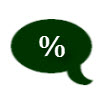 Shmuel Shayowitz (NMLS#19871) is President and Chief Lending Officer at Approved Funding, a privately held local mortgage banker and direct lender. Shmuel has over two decades of industry experience, including licenses and certifications as a certified mortgage underwriter, residential review appraiser, licensed real estate agent, and direct FHA specialized underwriter. Shmuel provides a uniquely holistic approach to comprehensive real estate and financial matters that goes well beyond any single transaction. Shmuel is an award-winning financier recognized for maximizing the short-term and long-term objectives of his client. As a contributing writer to many local and regional newspapers and publications, his insights have been featured in the media for many topics, including mortgages, personal finance, appraisals, and real estate trends.
Shmuel Shayowitz (NMLS#19871) is President and Chief Lending Officer at Approved Funding, a privately held local mortgage banker and direct lender. Shmuel has over two decades of industry experience, including licenses and certifications as a certified mortgage underwriter, residential review appraiser, licensed real estate agent, and direct FHA specialized underwriter. Shmuel provides a uniquely holistic approach to comprehensive real estate and financial matters that goes well beyond any single transaction. Shmuel is an award-winning financier recognized for maximizing the short-term and long-term objectives of his client. As a contributing writer to many local and regional newspapers and publications, his insights have been featured in the media for many topics, including mortgages, personal finance, appraisals, and real estate trends.

For those who frequent my articles, you know that I am not one to make bold predictions, especially when it comes to market fluctuations. We are experiencing ‘interesting times’ economically – as we see record-breaking stock markets, lower interest rate movements, and an uncertain economy, to say the least. All that said, I’d like to go on record and predict that the Federal Reserve will be lowering rates by at least 25 basis points next week when it meets at months end.
Before we can determine the effect that a Federal Reserve rate change has on mortgage rates, it is fundamental to know that the Federal Reserve does not control mortgage rates whatsoever. The Federal Reserve can control essential instruments such as the “Discount Rate” and “Fed Funds Rate,” which ultimately influence other market indices, but that is the extent of their ability.
The “Federal Funds Target Rate” is a short-term rate objective that is set by the Federal Reserve Board at its FOMC meetings. This rate is the interest rate at which depository institutions lend to other depository institutions overnight via Federal funds. The real rates may change intermittently, but it is usually very close to the target rate desired by the Federal Reserve.
The “Discount Rate” is the interest rate that banks pay when they borrow money directly from the Fed. This is usually on a short-term basis, to meet temporary shortages of liquidity caused by internal or external disruptions. The rate has been mostly symbolic in the past and is typically at least one percent higher than Fed Funds rates. Because of this, hardly any banks utilized this source or method of obtaining funds except during emergencies.
The “Prime Rate” has generally been known as the interest rate that is charged to the most creditworthy bank consumers. These loans are typically extended to things such as credit cards and home equity lines of credit, as well as most small business loans. The Prime Rate is directly tied to the Fed Funds Rate, usually 3 points higher than the published Fed Funds Rate.
In recent years, the Prime Rate has been offered to all types of consumers for various loan types and typically acts as a starting point (base) rate at which banks tie their loan rates. These rates are generally variable and subject to change every month based on the published Prime Rate in effect at the time.
Now that we have a better idea of the different rates in the marketplace, we see that the only direct effect to a consumer is through the change in the Prime Rate. Should the Fed decrease the targeted Fed Funds rate, consumers will be affected by receiving a lower price on their prime based loans as indicated above, beginning the following month after a rate increase.
Unfortunately, there is a widespread and very wrong misconception that following a Fed rate cut mortgage rates go down, and conversely following a rate hike, mortgage rates will go up. After a Fed rate cut, mortgage bonds often become less desirable, and typically more expensive (i.e., higher mortgage rates). This is because bondholders now require a higher yield in return for their bond investment, thus driving mortgage rates higher. In previous years after every Fed cut, we saw that bonds immediately sold-off in reaction, and pushed prices slightly higher in the short-term.
I will make a bold prediction to say that I don’t think mortgage rates will spike up because I do believe the economy is too weak. It’s too soon to tell. I do suggest that consumers use the time and opportunity to evaluate all of their outstanding loans and debts to see how they can benefit from the current market movements.
To learn more about Shmuel Shayowitz, click here or complete this form to be connected with Shmuel:


















